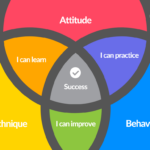The Challenges Business Leaders Face on Focusing on the Present
Introduction
Ever feel like you’re running on a hamster wheel, constantly moving but never truly getting anywhere? I just got back from a vacation where I was off the hamster wheel for 12 days. But, now, it’s time to get back to reality. I’m more aware of this challenging paradigm now that I’ve had a break. It got me thinking about how indoctrinated to this way of thinking I’ve become; to just be present. For many business leaders, this sensation is all too familiar. The demands of leadership can make it incredibly tough to focus on the here and now. But what if the key to unlocking greater productivity and joy lies in embracing the present moment?
The Importance of Being Present
Why the Present Moment Matters
In today’s fast-paced world, the concept of living in the moment can seem almost revolutionary. But it’s more than just a trendy buzzword; being present is essential for mental clarity and overall well-being.
Insights from Eckhart Tolle
Eckhart Tolle, in his groundbreaking book “The Power of Now,” emphasizes that our true power lies in the present moment. By fixating on past regrets or future anxieties, we drain our energy and miss out on the opportunities and joys that are right in front of us.
The Impact on Mental Health and Productivity
Living in the present not only reduces stress but also boosts productivity. When we focus on what’s happening now, we can respond more effectively to challenges and make better decisions.
Challenges Business Leaders Face
Common Distractions
Business leaders are bombarded with distractions. Emails, meetings, deadlines, and the constant need to strategize for the future can pull focus away from the present.
The Burden of Past Regrets
Dwelling on past mistakes can be paralyzing. Leaders often replay past decisions, wishing they could change the outcomes. This backward focus can hinder growth and innovation.
Anxiety About the Future
Worrying about future challenges and uncertainties is another common pitfall. This future-oriented mindset can create a sense of impending doom, preventing leaders from fully engaging with the present.
The Cost of Not Being Present
The inability to stay present comes at a high cost. It affects mental health, reduces productivity, and can strain relationships both at work and home.
Missed Opportunities
When we’re not fully present, we miss out on key opportunities. Whether it’s a fleeting business chance or a meaningful personal moment, these missed opportunities can add up.
Increased Stress and Burnout
Constantly shifting focus between the past and future can lead to chronic stress and burnout. This not only impacts leaders’ health but also their effectiveness in their roles.
Embracing the Present
The Benefits of Mindfulness
Mindfulness is the practice of bringing one’s attention to the present moment. It’s been shown to reduce stress, enhance emotional regulation, and improve focus.
How Being Present Enhances Leadership
Leaders who embrace the present are better equipped to handle stress, make informed decisions, and inspire their teams. They can also connect more deeply with their employees, fostering a positive work environment.
Real-life Examples
Consider leaders like Steve Jobs, who famously practiced mindfulness. His ability to stay present and focus on the now was a key factor in his innovative thinking and leadership style.
Five Ways to Improve Productivity and Joy by Being Present
Practicing Mindfulness Meditation
Mindfulness meditation is a powerful tool to train your mind to stay in the present. Start with just a few minutes a day and gradually increase the time as you get more comfortable.
Setting Clear Intentions
Begin each day by setting clear intentions. This helps direct your focus and ensures that you prioritize what truly matters.
Limiting Distractions
Identify and limit distractions. This might mean setting specific times for checking emails or creating a quiet workspace to enhance concentration.
Engaging in Active Listening
Active listening is a cornerstone of being present. It involves fully focusing on the speaker, understanding their message, and responding thoughtfully.
Taking Regular Breaks
Regular breaks throughout the day can help maintain your focus and prevent burnout. Use these breaks to stretch, breathe, and reset your mind.
Implementing Change in Your Daily Routine
Creating a Mindful Morning Routine
Start your day with a mindful morning routine. This could include meditation, setting intentions, or simply enjoying a quiet moment with your coffee.
Mindfulness During Meetings
Practice mindfulness during meetings. Focus on the discussion at hand, actively listen, and avoid multitasking.
Reflecting and Adjusting Your Approach
At the end of each day, take a moment to reflect. Consider what went well and what could be improved. This reflection helps you stay grounded and make necessary adjustments.
A Final Word
The journey to being present is ongoing, but the benefits are immense. By embracing the present moment, leaders can reduce stress, improve productivity, and find greater joy in their personal and professional lives. Start small, be consistent, and watch as your focus and well-being transform.
FAQs
What are the main benefits of being present?
Being present helps reduce stress, improve focus, and enhance overall well-being. It allows you to fully engage with your tasks and relationships, leading to better decision-making and greater satisfaction.
How can I start practicing mindfulness?
Start with simple mindfulness exercises, such as focusing on your breath or doing a body scan. Gradually incorporate mindfulness into your daily activities, like eating or walking.
What should I do if I get distracted?
Acknowledge the distraction without judgment and gently bring your focus back to the present moment. Over time, this practice will become easier and more natural.
Can mindfulness improve my leadership skills?
Yes, mindfulness can enhance leadership skills by improving emotional regulation, focus, and empathy. It allows leaders to connect more deeply with their teams and make more informed decisions.
How long does it take to see the benefits?
The benefits of mindfulness can be felt almost immediately, but consistent practice over time will yield the most significant and lasting results.










